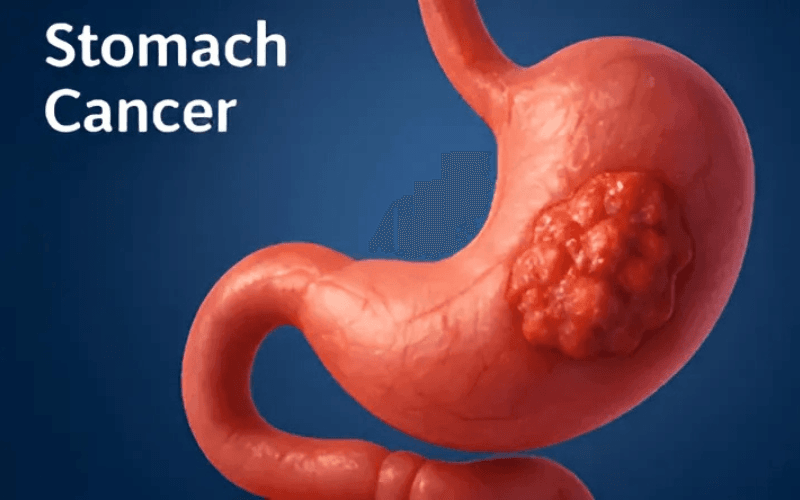Disclaimer: This content is for educational purposes only and should not be used as a substitute for professional medical advice. If you experience persistent symptoms, consult a licensed healthcare provider.
What Is Stomach Cancer?
Stomach cancer (gastric cancer) happens when abnormal cells form in the lining of the stomach. Early detection is often difficult because the signs can be mild and similar to common digestive problems. Knowing the potential early signs may encourage timely check-ups and support better digestive health.

Common Early Symptoms to Watch For
These symptoms do not confirm stomach cancer but may indicate a need for further medical evaluation:
- Frequent Indigestion or Heartburn – Ongoing discomfort that does not improve with diet or lifestyle changes.
- Upper Abdominal Pain or Pressure – Persistent pain or bloating without a clear cause.
- Loss of Appetite or Feeling Full Quickly – Changes in eating habits and appetite.
- Unexplained Weight Loss – Sudden weight changes without diet or exercise adjustments.
- Nausea or Vomiting – Especially if it occurs frequently or contains traces of blood.
- Ongoing Fatigue – Low energy levels possibly linked to anemia or other conditions.
When to See a Doctor
If digestive symptoms last longer than two weeks or worsen over time, schedule an appointment with your doctor. Early evaluation can help identify potential health issues before they become more serious.
Tips to Support Digestive Wellness
While no method guarantees prevention, you can take steps to maintain a healthy digestive system:
- Eat more vegetables, fruits, and whole grains.
- Reduce intake of processed and high-salt foods.
- Avoid smoking and limit alcohol.
- Stay physically active.
- Discuss screening options if you have a family history of stomach cancer.
Key Takeaway
Many stomach health issues share similar symptoms. Experiencing one or more of these signs does not mean you have stomach cancer, but it’s important to pay attention to your body and seek professional advice when needed.

